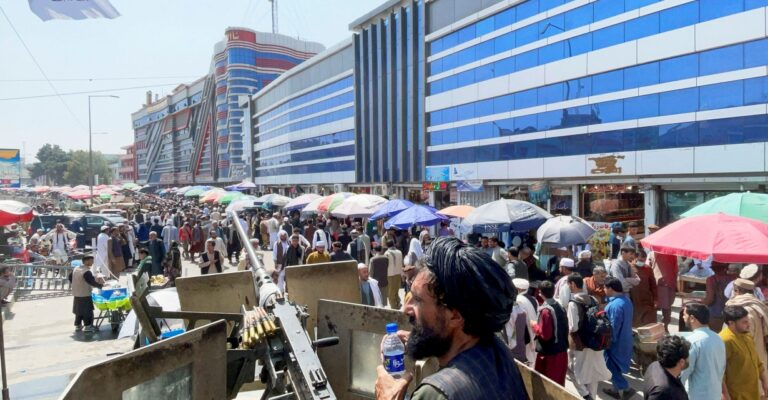
Taliban and opposition forces battled on Saturday to control the Panjshir Valley north of Kabul, the last Afghan province holding out against the militant group, as the top U.S. general warned of a “civil war” if the Islamists failed to consolidate power.
Both sides claimed to have the upper hand in Panjshir but neither could produce conclusive evidence to prove it. The Taliban, which swept through the country ahead of the final withdrawal of U.S.-led forces this week, were unable to control the valley when they ruled Afghanistan from 1996 to 2001.
Taliban spokesman Bilal Karimi said the districts of Khinj and Unabah had been taken, giving Taliban forces control of four of the province’s seven districts.
“The Mujahideen (Taliban fighters) are advancing toward the centre (of the province),” he said on Twitter.
But the National Resistance Front of Afghanistan, grouping forces loyal to local leader Ahmad Massoud, said it surrounded “thousands of terrorists” in Khawak pass and the Taliban had abandoned vehicles and equipment in the Dashte Rewak area.
Front spokesman Fahim Dashti added “heavy clashes” were going on.
In a Facebook post, Massoud insisted Panjshir “continues to stand strongly.” Praising “our honourable sisters”, he said demonstrations by women in the western city of Herat calling for their rights showed Afghans had not given up demands for justice and “they fear no threats.”
U.S. General Mark Milley, chairman of the Joint Chiefs of Staff, underscored the tenuous situation.
“My military estimate is, is that the conditions are likely to develop of a civil war. I don’t know if the Taliban is going to be able to consolidate power and establish governance,” Milley said.
Emergency, an Italian medical aid organisation, said Taliban forces had pushed further into the Panjshir Valley on Friday night, reaching the village of Anabah where the group has medical facilities.
CELEBRATIONS
Celebratory gunfire resounded in Kabul on Friday as reports spread of the Taliban’s takeover of Panjshir. News agencies said at least 17 people were killed and 41 hurt.
Pakistan’s spy chief Lieutenant General Faiz Hameed flew into Kabul on Saturday. It was not clear what his agenda was, but a senior official in Pakistan said earlier in the week that Hameed, who heads the powerful Inter-Services Intelligence (ISI) agency, could help the Taliban reorganise the Afghan military.
In Kabul, Taliban fighters broke up a demonstration by about a dozen women urging the group to respect women’s rights to education and jobs, according to private broadcaster Tolo news.
Footage showed women confronted by armed militants covering their mouths and coughing, and one demonstrator said the fighters had used tear gas and tasers against the participants, who had been carrying banners and a bouquet of flowers.
“They also hit women on the head with a gun magazine, and the women became bloody,” said a demonstrator who gave her name as Soraya.
The Taliban imposed violent punishments and barred women and older girls from school and work when previously in power, but have sought to present a more moderate face this time.
GOVERNMENT NEXT WEEK
A Taliban source said the announcement of a new government would be pushed back to next week.
Taliban co-founder Mullah Abdul Ghani Baradar, reported by some Taliban sources to be in line to lead the new government, said in remarks on Qatar’s Al Jazeera channel that the new administration will include all factions of Afghans.
Some signs of normality returned to Kabul.
Qatar’s ambassador to Afghanistan said a technical team was able to reopen Kabul airport to receive aid, according to Al Jazeera, which also cited its correspondent as saying domestic flights had restarted.
The Taliban’s main spokesman, Zabihullah Mujahid, also said one of the main foreign exchange dealers in Kabul had reopened.
Afghanistan’s economy has been thrown into disarray by the Taliban’s takeover. Many banks are closed and cash is scarce.
Western powers say they are prepared to engage with the Taliban and send humanitarian aid, but that formal recognition of the government and broader economic assistance will depend on action – not just promises – to safeguard human rights.
(REUTERS)






